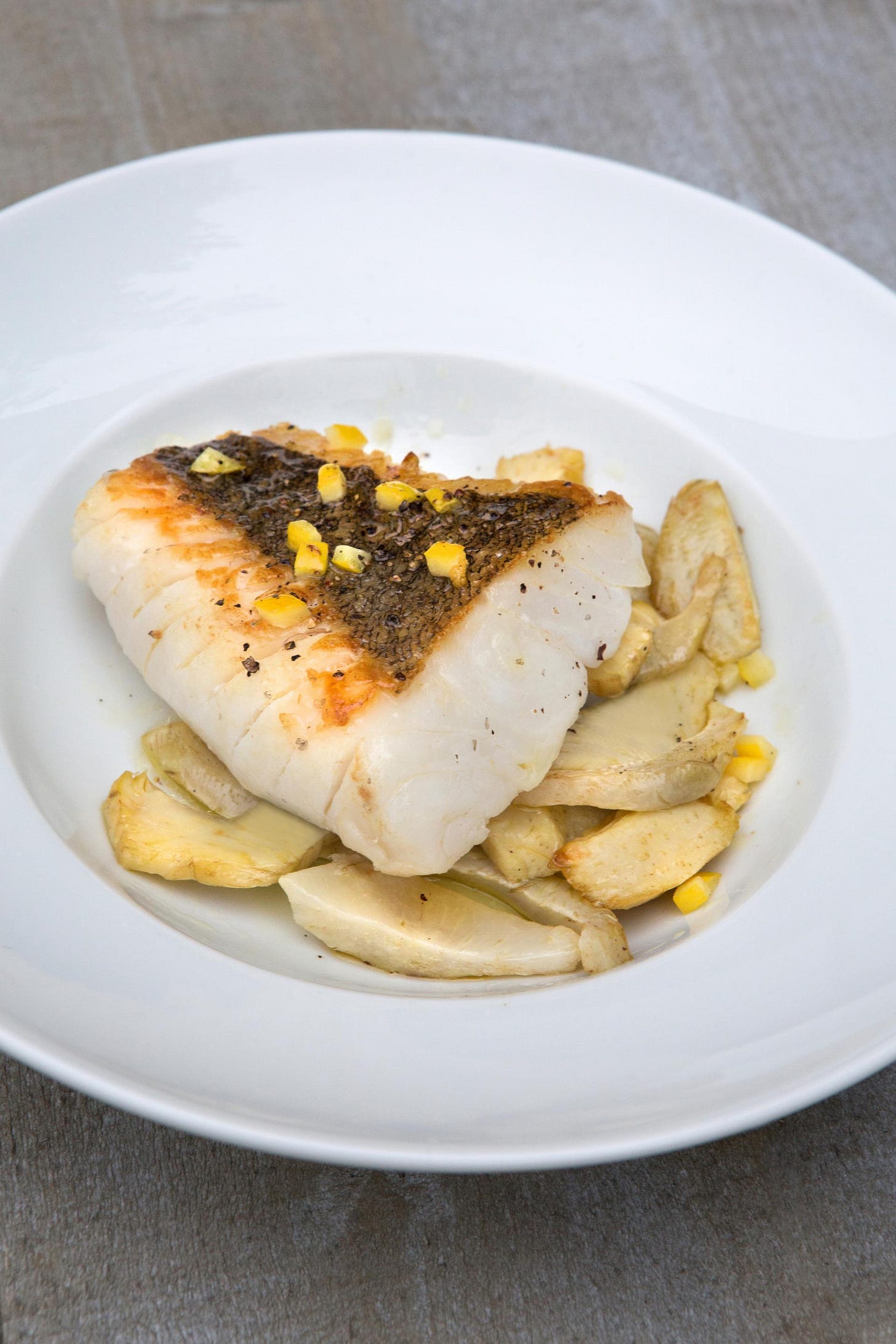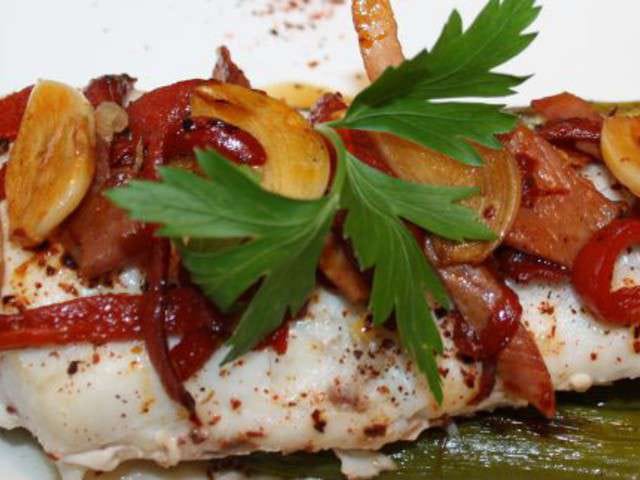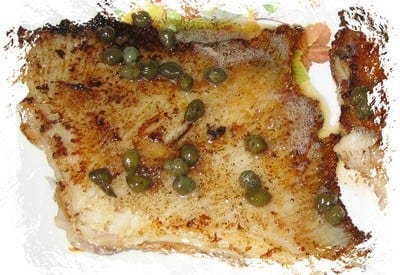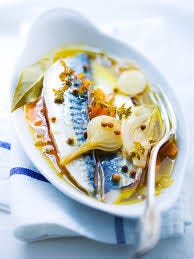Navigating French Fish Names During Lent
knowing your merlu from your dorade can save you some second-guessing
I’m not Catholic, but in a country where nearly every other day honors a saint, you’d think there’d be some grand announcement marking the lead-up to Easter. Then again, subtlety suits the season—Lent isn’t exactly the time for flashy reminders.
Lent is approaching… soonish?
Fewer parties, more penance kinda thing?
Or at least people cut back.
Quite honestly, I haven’t seen a lot of fasting, at least not among the people I know. Or they didn’t do the very American or Vegan thing of telling about what they eat and why. Maybe the French just suffer silently with it.
In any case, they eat a lot of fish and I’m always second-guessing fish names when I’m in a French market or restaurant. I’ll be staring at a chalkboard menu, trying to match a name to something familiar—only to end up with a dish that’s kind of like cod, or a fish that looks like a sea bass but has a richer, nuttier flavor.
I put together a few recipes I like with links for folks who do it well. See below.
K
French fish names don’t always translate so well, and the ones most common here aren’t necessarily staples in the U.S. So, if you’ve ever hesitated before ordering, here’s a guide to five fish you’ll frequently find in France but might not immediately recognize.
1. Lieu Jaune (Pollock)
Lieu = place, jaune = yellow, lieu jaune = a fish. Go figure. But then, they call scallops Saint John’s Nuts and I have never been sure if it was an American-style metaphor or not.
Pollock, or lieu jaune, is often mistaken for cod but has a slightly firmer texture and a sweeter taste. It’s a common choice for simple baked or pan-seared fish dishes. One classic way to enjoy it is Lieu Jaune au Beurre Blanc, where the fillet is served with a silky, tangy butter sauce. It’s lovely and mild.
2. Merlu (Hake)
Merlu, or hake, is a staple in France but nearly unheard of in American markets, except as a mystery ingredient in fish sticks. It’s a delicate white fish, softer than cod, and often used in Basque and Breton cooking. A favorite preparation is Merlu à la Basquaise, where it’s simmered in tomatoes, peppers, and garlic.
Try this version. Again, in French, but there are simple browser translators available.
3. Raie (Skate Wing)
Skate, or raie, is one of the most uniquely textured fish you’ll encounter in France. Its firm yet slightly stringy flesh is mild in flavor but works beautifully with rich sauces. The classic dish Raie au Beurre Noir features a brown butter, vinegar, and caper sauce.
Recipe here. Let me know if anyone wants help translating.
4. Dorade (Gilt-Head Bream)
Not Dorado, which I keep mixing it up with, but bream? No idea as an American.
It’s a Mediterranean favorite, dorade has a subtly nutty, slightly sweet taste. Most often served whole, grilled, and drizzled with olive oil and lemon. If you see Dorade Royale Grillée on a menu, expect a perfectly crisp-skinned fish with tender, flavorful meat.
(It’s an undeniable fact that sea bream is one of the tastiest fish! – at least according to the writer of this recipe, but it’s a good recipe.)
5. Maquereau (Mackerel)
This confused me, until I said it out loud: “Mackerel”, or maquereau, is an oily, strongly flavored fish often served grilled, smoked, or pickled. It’s popular for its bold taste and health benefits. One French preparation, Maquereaux en Escabèche, involves marinating it in vinegar, oil, and spices.
If you like, you can spice it up with any of your favorite chilis – I do.
French cuisine loves its regional specialties, and that extends to fish—what’s common on a Parisian brasserie menu might be completely different from a Breton seafood shack. At least you’ll know what type of fish you’re getting.
Turn Water Into Wine (or Just Buy Me a Coffee)
Perform a miracle? Multiply some loaves and fishes? Trying to stay on theme.
No pressure, but if you’ve got a water-into-wine trick up your sleeve, I wouldn’t say no.
Barring divine intervention, you can also just buy me a coffee if you’re so inclined.
And BTW, I am miles off - Lent is next month.
I really do need to find a clever way to say, hey, support this thing, it means a lot, and it keeps me hangin’ on. But for now, this is what I’ve got.






I didn’t mention that mackerel is also an insult in French, as Orwell was called this a lot in down and out in London in Paris, basically translating into pimp. Which makes it even stranger, considering the book, but I guess that’s what he was called. https://www.wordreference.com/fren/maquereau
Also, I don't think Lent is big here (but then again, I grew up in a atheist-agnostic household so what would I know about such things?). But I remember school cafeteria had fish every Friday, which is linked to religion. I wonder if they still do it.